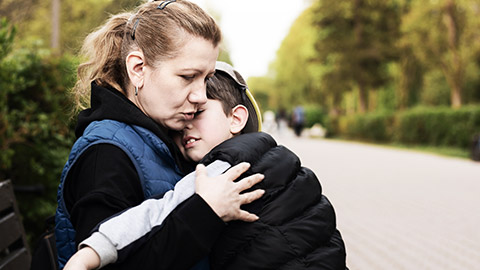In this topic, we will explore the concept of ethical conduct and what to do when you have an ethical dilemma. We will also explore the legal requirements of the role and our obligations to advocate for children.
By the end of this topic, you will understand:
- What ethics are in relation to the early childhood education and care sector
- Early Childhood Code of Ethics
- UN Convention on the rights of the child
- Conflict of interest
- Legal and ethical connectedness
- Responsibilities such as confidentiality and advocacy for children
The ECEC Sector is a relationships-based profession and there are many ‘grey’ areas when engaging with so many people. Ethics are an integral part of the framework in which we must operate to meet our obligations, our duty of care and ensure the safety of children and others.
Understanding ethics is important for educators because we are responsible for children every day. Sometimes, it is our responsibility to protect the children or stand up for their rights.
These decisions do not always come easily and can often feel like a challenge especially when both sides of the decision (to do or not to do) make sense. Sometimes, it is interesting to use the North Star concept, meaning applying what fits your values, philosophy, and what you know to be right, such as laws and codes of behaviour, to guide your decision.
Watch this 5-minute YouTube video by the Ethics Centre titled “What is Ethics?” to understand the essence of ethics.
To help educators make decisions about the ethical dilemmas that they might face in the education and care of young children and their work in the sector, a Code of Ethics has been created to guide practice.
Early Childhood Australia (ECA) Code of Ethics
The ECA Code of Ethics is supported through the National Quality Framework and is implemented in services Australia-wide. Some services might also have a Code of Conduct in their own service and a set of values that guide educators.
The ECA Code of Ethics has a number of principles that guide the behaviour of early childhood education and care professionals.
Watch this short one-minute video by the ECA Learning Hub and consider how you might use the Code of Ethics in your practice.

Ethics
The ECA Code of Ethics is written in such a way that holds educators accountable, for example ‘I will’ and then states the expected behaviour.
The areas covered by the ECA Code of Ethics are:
- Profession
- Children
- Colleagues
- Families
- Community & Society
Responding to ethical dilemmas in the education and care sector can be made easier by the Code of Ethics.
Case study

Alma in the Kinder Room has been noticing a few unusual behaviours with Max who is four years old. He began wetting himself which had been unusual for the past year.
When Alma was sitting at the drawing table the other day, Max drew himself with a cross over his mouth and his picture was dark and the image of him was crying. Alma asked about this drawing using open-ended questioning. He said, ‘I can’t tell you, it’s a secret’. Then he kept drawing.
Alma spoke to the team leader Tristan, who is also the teacher, and asked his opinion on this. They decided to document the discussion and ask his mother if she had noticed anything unusual.
Mum said she had not noticed anything unusual.
Later that same week, Max took another child into the bathroom and was observed trying to touch their private parts.
At this point, Alma was concerned and spoke again with Tristan and the Director. They reviewed the Child Protection policy and recognised that some of the things that were happening were indicators of abuse.
Alma considered her choices. She had always got along well with Mum and Dad and had looked after Max for a few years now. The family seemed lovely, and she was finding it hard to imagine anything untoward happening.
She decided to report the incident as she is a mandated notifier.
This aligns with the ECA Code of Ethics of acting in the interest of children.
Ethical dilemmas occur when you have a difficult choice to make between two options and whichever choice you make creates challenges based on ethics and morals. In an ethical dilemma, there is only one right choice. However, this choice may cause you to be misaligned with your current values or morals.
Of course, when the law is involved, it clarifies which decision is correct, however it does not make it easier.
Examples of ethical dilemmas in ECEC include but are not limited to:
- Reporting potential child abuse or neglect when you have worked so closely with a family and their children, and you believe strongly in supporting families. Of course, the law here requires that we make the decision to protect the child and make the report.
- Custody cases between families. You may believe that a child should have access to both parents and or you may know of the history of a parent who has now been granted custody and you may have concerns for the child’s safety when you hand them to the parent. Here, the law also provides you with the guidelines to make the decision.
There are many such ethical dilemmas, and it is important to seek support from your manager where you need help to make a decision.
Conflict of interest

Real or perceived conflicts of interest exist when a person or group of people are given priority or special attention and care because of a relationship they have with someone who is responsible for making decisions.
In ECEC, conflicts of interest can arise in a range of situations and as an educator you need to be aware of the potential for people to perceive you as having a conflict of interest. Using the ethics to guide your decision making is a great idea because it ensures you are considering your duties and responsibilities to all the people you work with.
In the event you have a conflict of interest, you should talk to your manager to discuss the situation.
In any ethical dilemma situation at a workplace, it is very important to document conversations, times and dates of conversations, incidents, and occurrences. This is because we can get emotional during these challenging situations and often forget or incorrectly remember the facts.
Case study

Danni is an educator in the Little.ly centre and her sister had a baby. Danni recommended she come to the centre with her child. Danni’s niece (Kim) started and was in the room Danni worked in. She was often supporting Kim and Kim wanted her more than the other educators.
Sometimes Danni could not help all the other children because she was holding Kim. Kim had begun crying for most of the day and when Jenny was on her lunch break it was tricky for the staff to settle Kim. The staff talked with Jenny about having a new approach to Kim’s attachment and suggested she have a different Primary Caregiver.
Danni said no and decided that Kim was just going through a stage and it had nothing to do with the relationship between them that was causing the problem.
One of the educators complained to the Director and said that Danni’s niece was getting special treatment and that Jenny was not open to the fact that Kim needs extra support.
Danni could not believe this! She was quite upset and said, ‘what should I do? Just let her cry?’
The Director suggested that even though she might not be meaning for this to be a conflict of interest, she needs to consider that others are perceiving this as the case.
They worked on a plan to reduce Danni’s engagement with Kim so that Kim could settle in and engage with other educators and children.
Note
Conflicts of interest can happen between families and staff, staff and children, and between staff.
Confidential information about families. Incidents and conversations are shared stored in early childhood environments and would be stored in a confidentially in the Director/Managers office. As an Educator, if you do have access to this information, it is important that this information can’t be shared externally outside of the service or with anyone not involved in the situation. Your Manager/Director will assist you and guide you in this process but remember confidential information should never be copied or shared.
Watch this 5-minute YouTube video by McCombs School of Business titled “Conflicts of interest” and learn more about conflicts of interest and how they can manifest in day-to-day interactions:
We are responsible for both children and their families and this can cause conflict of interest.
Duty of care and confidentiality

Duty of care is another element of our obligations under the law, ethics and requirements of our role.
What is duty of care?
Duty of care is an obligation to ensure the protection, safety and wellbeing of people to who you owe a duty of care. This includes taking due care of children and ensuring that you respond appropriately to perceived or real risk. In the ECEC sector, duty of care includes:
- Feeding, caring for and nurturing children
- Following the law, standards and regulations
- Reporting alleged or suspected abuse and neglect. Depending on the state/territory’s requirements, educators may have mandatory reporting responsibilities. Check with your Regulatory Authority to see if this applies to you. Services must also have policies and procedures regarding how to respond to suspected abuse and/or neglect. You can find more information about reporting requirements on ACECQA’s website.
- Providing a safe environment
- Communicating with families to ensure effective transitions between the service and home
Watch this 12-minute YouTube video by youthlegal titled “Working with Young People Part 1: Your Duty of Care” to learn more about duty of care:
We also have a duty of care to families and must uphold their rights. These rights can include their right to be respected, their right to have their information maintained in a confidential manner and their right to a safe and inclusive environment.
There are a number of legal obligations and ethical considerations to make when it comes to our engagement with families.
Case study

One morning, Sarah arrived at the centre to drop off her child and she was struggling to settle Tye (her child) in. He cried and she told the team leader that she and her husband had separated over the weekend and things are quite uneasy at home.
She told the educator that they would be proceeding through the legal proceedings for custody.
The team leader recommended that Sarah chat with the Director about their situation.
The Director arranged for two different accounts or enrolments to be set up and on the days Tye’s Dad would access care, he could pay that account and vice versa.
In the weeks and months following the family’s separation, the Director found it hard to get Sarah to pay for her fees and told Tye’s Dad that the fees have not been paid.
This is a breach of confidentiality.
We also hold a responsibility to follow the legal frameworks put in place. Ensuring that we follow the law when managing ethical decisions is important, for example, throughout a custody situation with a child and their family. Where there are documents that state the custody arrangements, we are obliged to adhere to these requirements.
We still have a duty of care to the child, so if there are any concerns about the child’s safety within the arrangement, we must report concerns through the appropriate channels.
Note
This is an example of a duty of care policy by the Victorian Department of Education. Every state in Australia is guided by its own early childhood legislations and policies.
As educators, we also have obligations to advocate for children. There are a range of ways we can engage in advocacy and support the improvement of conditions for children. These responsibilities and obligations relate to all educators in early childhood education and care, outside school hours care and education support roles.
Visit the following websites for more information on your legal obligations:
The United Nations Convention on the rights of the child is the most widely supported agreement between international human rights.
Visit the UNICEF website and read about The Convention on the Rights of the Child.
Visit the following websites and read more about the rights that children have:
- “UNICEF annual report 2019” by UNICEF
- “Core Commitments for Children” by UNICEF
- “About Children’s Rights” by Australian Human Rights Commission
- “Supporting young children’s rights” by Australian Human Rights Commission
- Building belonging: A toolkit for early childhood educators on cultural diversity and responding to prejudice” by Australian Human Rights Commission
Note: To support and promote children’s rights as educators, we can look to resources to support us to engage children in thinking about these concepts.
This 3-minute video by Australian Human Rights Commission titled “Colours of Australia - song about diversity in Australia will provide you with an idea of a song you can sing with children to promote diversity:
Use the following questions to check your knowledge. You can check the correct answer by clicking on the 'Answer' button:

Q1: Explain how ethics relate to our work in the ECEC sector.
The ECEC Sector is a relationships-based profession and there are many ‘grey’ areas when engaging with so many people. Ethics are an integral part of the framework in which we must operate to meet our obligations, our duty of care and ensure the safety of children and others.
Q2: Identity who created the Code of Ethics for the ECEC Sector.
ECA - Early Childhood Australia
Q3: Describe an example of a conflict of interest in ECEC.
- The centre director is friends with certain staff members and shows favouritism
- Educators show favouritism to certain children
- Educators treat the children of educators who work at the service differently.
Q4: Explain how ethics link to the legislation.
The process of legislation on ethical issues should be structured as a process of interaction between the legislature and society, or relevant sectors of society, so that the development of new moral norms and the development of new legal norms may reinforce each other.
Q5: Describe how educators can apply the principles of the UN Convention to the Rights of the Child.
By reading the UN Convention and understanding of the intention behind it. To empower children and treat them fairly. Applying the fundamentals of the convention on each and every child in your care. When working with children ensure you provide them with a safe, secure and nurturing environment for them to flourish.

